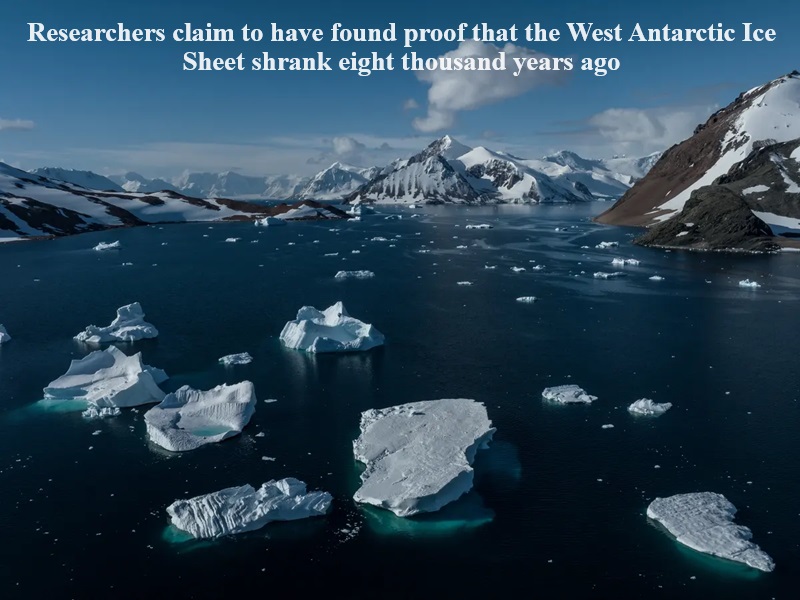
The British Antarctic Survey and researchers at the University of Cambridge have uncovered conclusive evidence indicating a sudden and dramatic reduction in the West Antarctic Ice Sheet around eight thousand years ago, marking the conclusion of the Last Ice Age.
Data extracted from an ice core unveils a remarkable thinning of the ice sheet by 450 meters within a span of less than 200 years, surpassing the height of the Empire State Building.
This discovery marks the first instance of such rapid ice loss documented in Antarctica, raising concerns among scientists regarding the potential instability of the West Antarctic Ice Sheet under current warming trends, potentially reaching a critical threshold and triggering a swift collapse.
Published in Nature Geoscience on February 8, the new study sheds light on the rapidity with which Antarctic ice could dissipate if temperatures continue to climb.
Professor Eric Wolff, the senior author of the study from the Cambridge Department of Earth Sciences, remarked, “We now possess direct evidence of rapid ice loss in this region in the past. Should segments of this ice sheet become unstable, a similar scenario could unfold again, beyond the predictions of our models.”
The Antarctic ice sheets, extending from west to east, contain sufficient freshwater to elevate global sea levels by approximately 57 meters. Given that a substantial portion of the West Antarctic Ice Sheet lies atop bedrock situated below sea level, it is deemed particularly susceptible to destabilization.
Model projections suggest that the disappearance of a significant portion of the West Antarctic Ice Sheet in the ensuing centuries could lead to a rise in sea levels.
Dr. Isobel Rowell, a co-author of the study from the British Antarctic Survey, elucidated, “Our objective was to ascertain the fate of the West Antarctic Ice Sheet as the Last Ice Age drew to a close, during a period of gradual warming on Earth, albeit at a slower pace than the current anthropogenic-induced warming. Through this research, we can trace the evolution of the ice sheet and estimate the implications of potential future changes.”

Post Your Comments